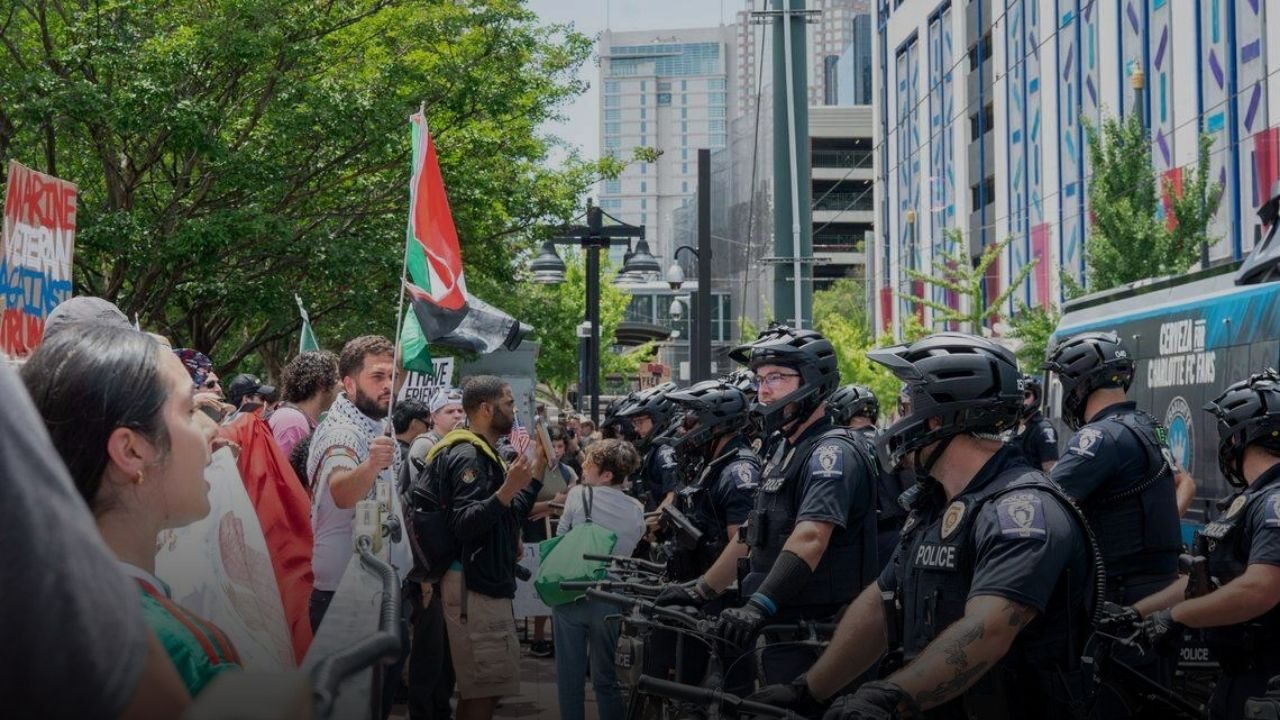CMPD Officer Identified Only by Number Injures Disabled Protestor at Charlotte Rally
CHARLOTTE, NC — A disabled protestor injured during a Charlotte demonstration says she is still waiting for answers from the Charlotte-Mecklenburg Police Department (CMPD)—specifically, the name of the officer who she claims shoved a bike handlebar into her throat during the event.
Lindsey Key, a 35-year-old Charlotte resident, participated in the June 14 “No Kings” march against former President Donald Trump in uptown Charlotte. What started as a peaceful protest quickly turned confrontational, Key says, when a bike officer with no nameplate, only a number — “180” — on his uniform allegedly rammed her with his bike, causing visible bruising to her neck.
“He just shoved me in the throat with his bike handle,” Key can be heard saying in a video she posted to TikTok.
CMPD Refuses to Release Officer’s Name
Despite filing a formal complaint, contacting the officer’s supervisor, and supplying photos and video evidence to internal affairs, Key says her requests for the officer’s name have gone unanswered.
State law is on her side. Under North Carolina public records law, the name of a public employee—including police officers—is a matter of public record. Yet CMPD has not responded to repeated questions about why this officer’s identity is being withheld.
In a statement from Chief Johnny Jennings’ team, the department explained that “some of our officers may wear numbered badges in place of traditional name tags,” especially during crowd control events. They claimed the numeric system enhances officer safety while maintaining accountability, though they offered no explanation of how this practice improves safety or when the policy was implemented.
CMPD Uniform Policies in Conflict
CMPD’s official directives state that sworn officers must wear nameplates on their uniforms, but allow for alternatives—like screen printing or embroidery—on uniforms like those worn by bike officers.
The officer in question, however, had no name or printed identification—only the number “180,” leaving protestors and accountability advocates concerned about transparency.
Disability Made Incident Worse
Key’s medical conditions — including rheumatoid arthritis, fibromyalgia, and hypermobile Ehlers-Danlos syndrome — make her slower to move and more prone to injury. She told the Charlotte Observer that the pain from the bike handlebar strike flared her fibromyalgia for a full week.
“Just to move back, I have to be a little more careful,” Key explained. “Because of my [Ehlers-Danlos], I could dislocate my hip… which happens.”
In the confrontation, after she told the officer she was disabled and hadn’t been given enough time to move, the officer allegedly replied, “Then go home.”
Key Calls for Accountability and Training
Key says she was at the front of the march crowd intentionally—to record officers’ faces in case misconduct occurred. She insists the officer escalated needlessly and that CMPD must improve how its officers handle protests.
“I truly believe that the officer was not trained appropriately for the job that he was doing,” she said.
CMPD continues to maintain they are committed to “transparency, professionalism, and building trust” with the community, yet have provided no answers to Key’s concerns.
As public criticism grows around unidentified officers, particularly in protest situations, Key’s story is fueling renewed calls for clear name visibility, accountability, and proper protest policing tactics in Charlotte and beyond.
Have you witnessed or experienced a similar incident involving CMPD or another local agency? Share your story with us at SaludaStandard-Sentinel.com and help us bring transparency to public policing practices.







